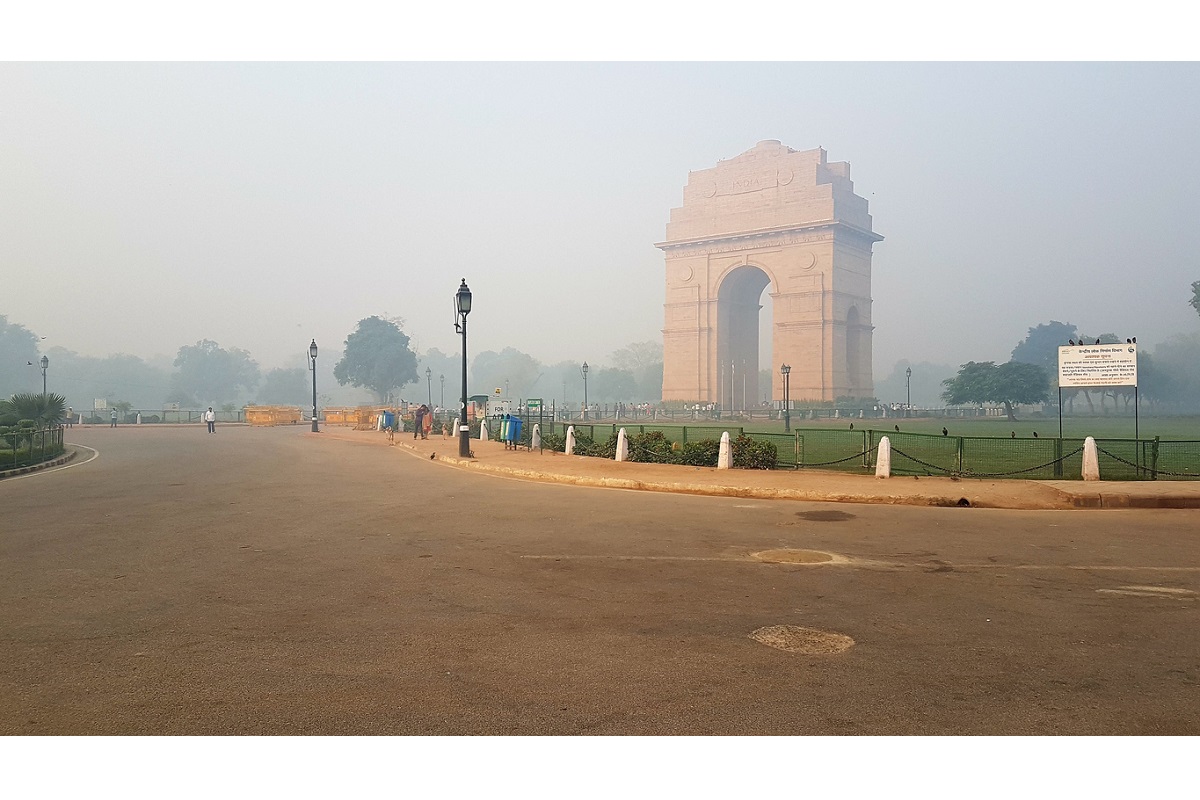As Delhi AQI turns severe, curbs on cars and construction return
AQI in Delhi's Anand Vihar was recorded at 478 on Sunday morning.
DMRC has already pressed into service 14 anti-smog guns (ASGs) at its construction sites, disclosed plans to install more such guns soon with a view to controlling air pollution in the city, according to sources.

(Representational Image; Source: iStock)
The Delhiites spent their day on Sunday with the air quality remaining in the ‘very poor’ category, according to the System of Air Quality and Weather Forecasting And Research (SAFAR). A thin layer of fog also engulfed some parts of the national capital, reducing visibility considerably.
The air quality index (AQI) stood at 309 in the morning with PM10 levels being 255 (‘poor’ category) and PM2.5 levels 132 (‘very poor’ category). The AQI rose to 329 (‘very poor’ category) around 6 pm.
Meanwhile, the Delhi Metro Rail Corporation (DMRC), which has already pressed into service 14 anti-smog guns (ASGs) at its construction sites, disclosed plans to install more such guns soon with a view to controlling air pollution in the city, according to sources.
Advertisement
These ASGs were installed over a period of time in the past. Construction activity, however, remains halted at this stage following orders to this effect issued by the authorities concerned.
In a statement, the DMRC said, “Currently, as part of its Ph-IV corridors as well as some other construction projects, 12 civil contracts are operational across the national capital. These state-of-the-art ASGs are capable of spraying fine mist up to 70 to 100 m. One ASG is considered adequate for covering an area up to 20,000 sqm.”
According to the DMRC statement, “Apart from the regular use of ASGs, the DMRC takes a number of other measures to minimize the impact of pollution emanating from its sites. To make it more effective daily barricade cleaning and toe-dust cleaning are carried out. All construction materials are properly covered with tarpaulin and other materials. The wheels of vehicles leaving the sites are properly cleaned so that they do not spread dust or mud on the streets. The materials carried by them are also adequately covered.”
The statement further said, “All roads leading to major construction sites are properly black-topped and the construction and demolition waste generated is recycled at specified C&D recycling facilities. Medical care facilities are also available for workers who are involved in the loading and unloading work of such materials. DMRC accords the highest priority to the issue of protection of the environment as an integral part of its work culture.”
Advertisement